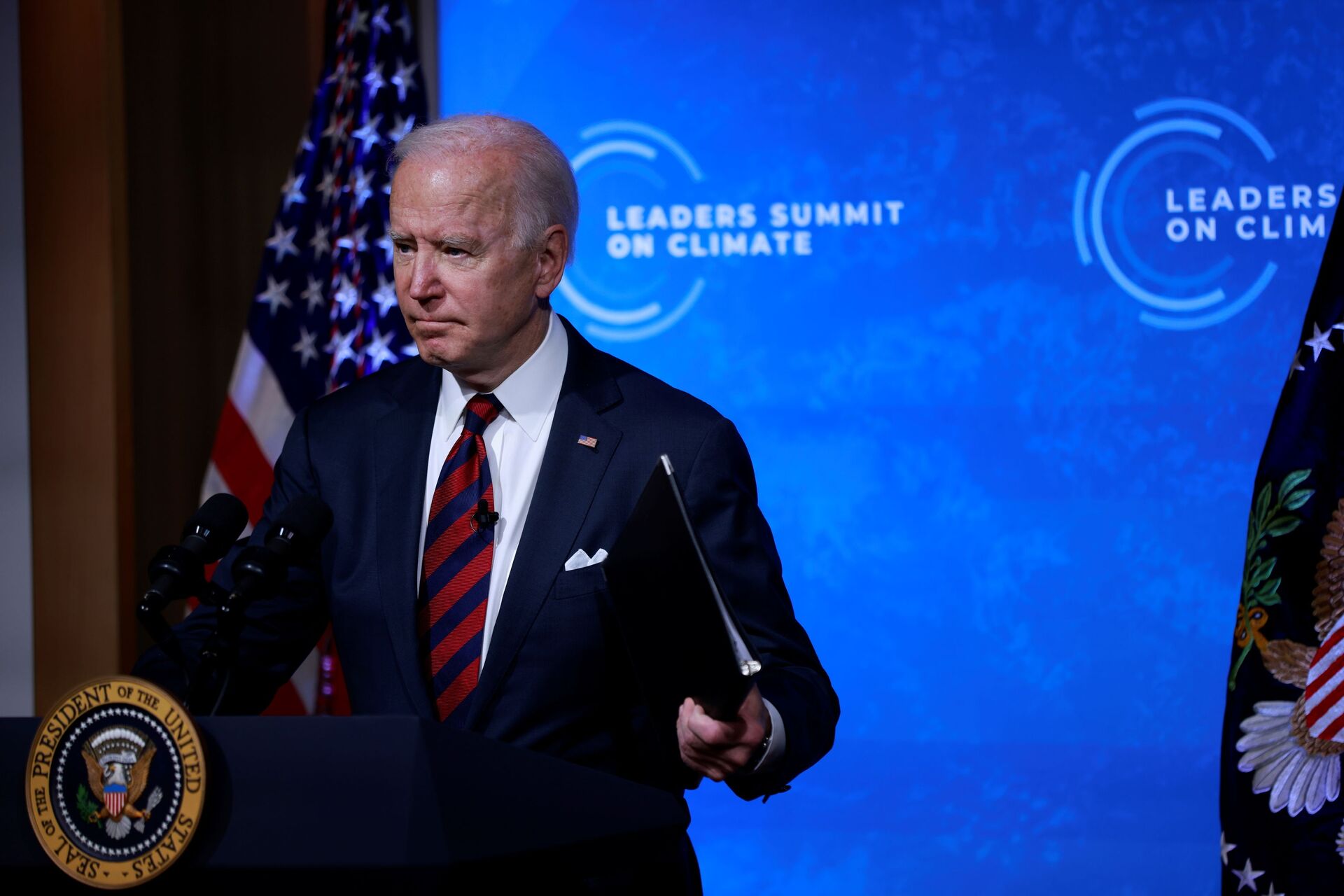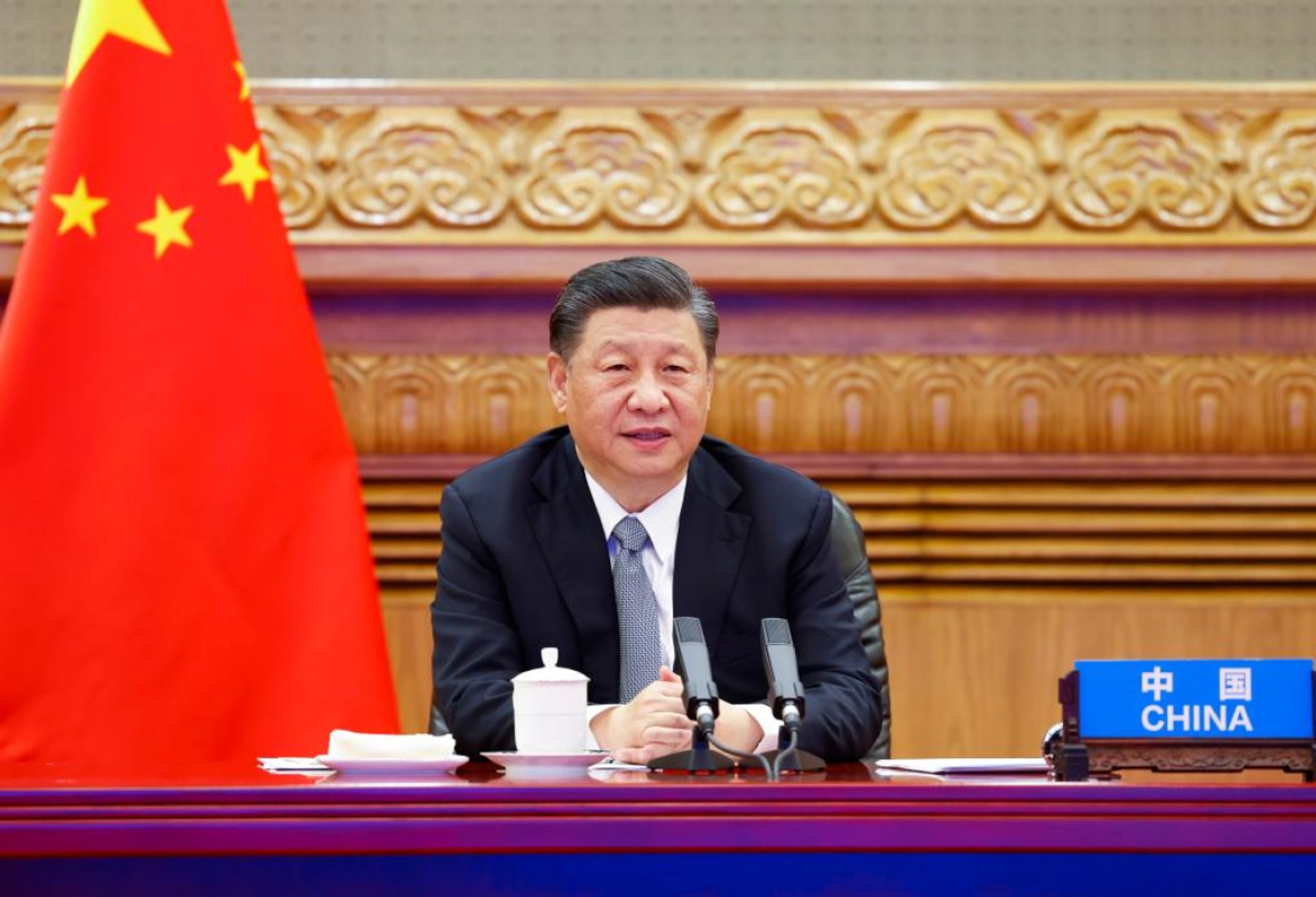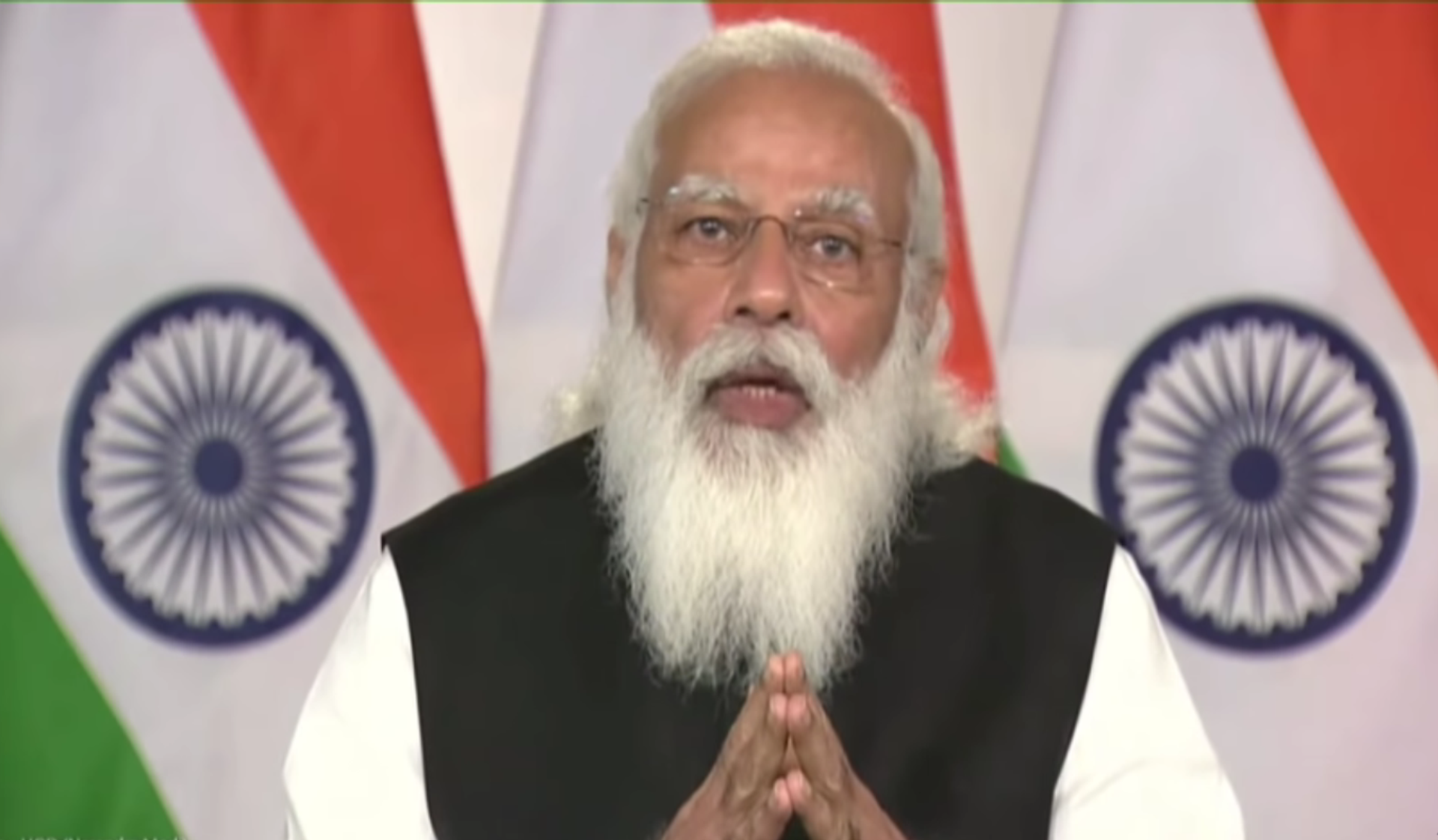At the Leaders Summit on Climate hosted by US President Joe Biden on Thursday, the heads of some of the world’s leading industrial polluters vowed steep cuts to their carbon emissions in the coming years, while developing nations came together to call on developed nations to help support their green energy transitions.
The trends tracked by scientists have been alarming: according to data collected by the US space agency NASA, sea levels have risen by 8 inches over the past century - twice the rate of the previous 100 years, and accelerating in recent decades.
The Earth’s average surface temperature has already increased by 1.1 degrees Celsius since the late 19th century, when heavy industrialization began on an increasing scale, and the seven most recent years have successively been the warmest on record. The worst estimates project an increase by as much as 5.5 degrees Celsius over the next 100 years, and at both poles, ice sheets are melting at a shocking rate, threatening greater sea level rise. The Arctic Ocean’s summer sea ice is expected to disappear as early as 2035, endangering a major factor in limiting global warming.
The Thursday summit featured dozens of nations, ranging from the richest to some of the poorest and those already feeling the effects of a warming global climate.
Ahead of the summit, many of the leading industrial powers, including China, the US and members of the European Union, separately laid out their own stricter climate change-averting measures, including setting deadlines for transitioning to carbon-neutral economies. In a rare moment of unity, Washington and Beijing even issued a joint statement expressing their commitment to “tackle the climate crisis … with the seriousness and urgency that it demands.” The EU also laid the groundwork for its own climate law.
United States of America
Much of the Thursday summit, which was held on both the Earth Day environmentalist holiday and the fourth anniversary of the signing of the Paris Climate Agreement, was thus a reiteration of those goals with some further elaboration on how they will be achieved or a commitment to provide such information.
US President Joe Biden, who called the summit, also had to demonstrate his administration’s commitment to fighting climate change after his predecessor, Donald Trump, pointedly dismissed the scientific consensus and undertook major efforts to boost the US’ fossil fuel extraction.

“The signs are unmistakable, the science is undeniable, and the cost of inaction keeps mounting. The United States isn’t waiting: we are resolving to take action,” Biden said. “No nation can solve this crisis on their own.”
He also hailed the “extraordinary engine of job creation” in the conversion to renewable energy and responses to climate change, including a near-total overhaul of energy infrastructure that would create millions of jobs.
Biden recommitted to the goal of a carbon-neutral economy no later than 2050 and cutting US carbon emissions by 52% by 2030.
People's Republic of China
Chinese President Xi Jinping, who only on Wednesday agreed to attend the summit, highlighted the importance of multilateralism, but also noted that developing countries face additional challenges that will require the help and understanding of richer nations, which he called “the principle of common but differentiated responsibilities.”
“Developing countries now face multiple challenges to combat COVID-19, grow the economy, and address climate change. We need to give full recognition to developing countries’ contribution to climate action and accommodate their particular difficulties and concerns,” Xi told summit attendees.
“Developed countries need to increase climate ambition and action. At the same time, they need to make concrete efforts to help developing countries strengthen the capacity and resilience against climate change, support them in financing, technology, and capacity building, and refrain from creating green trade barriers, so as to help developing countries accelerate the transition to green and low-carbon development.”
Xi also noted how staying committed to the values of “harmony between man and nature” at the heart of Chinese civilization, China and other nations should reject “shortsighted approaches of going after near-term development gains at the expense of the environment.”
He further pledged to “strictly control” China’s coal-fired power plants and continue reducing the increase of coal use from the nation’s recently completed 13th five-year plan, with the goal of phasing it down in the 15th five year plan, expected to begin in 2026. He noted that while the nationwide goal was for carbon emissions to peak in 2030, areas that are judged to be capable of peaking sooner than then will be encouraged to do so.

China’s target for carbon neutrality remains a decade after the US and EU, in 2060, which Xi defended by saying that overall, China would still be accomplishing the feat of industrializing and converting to a green economy in a much shorter time than many other developed countries.
China is the world’s largest user of coal and largest emitter of carbon, although when judged by per capita use, the country rates on par with many European Union nations and far below the United States, which emits the most carbon per person of any country on the planet.
Xi’s attitude was echoed by other nations present, including Jamaican Prime Minister Andrew Holness and British Prime Minister Boris Johnson. “It’s going to mean the richest nations coming together and exceeding the $100 billion commitment they already made in 2009” to support developing nations’ green energy transitions, Johnson said.
India
Indian Prime Minister Narendra Modi also noted that “India’s per capita carbon footprint is 60% lower than the global average.”

Modi said his country’s “bold” carbon reduction goals demonstrated its commitment to sustainable development, including being one of the few nations whose Nationally Determined Contributions under the 2015 Paris agreement are compatible with the 2-degree Celsius goal.
He also announced India and the US would be jointly opening a “India-US climate and clean energy Agenda 2030 partnership” to provide financing and investment for developing nations, “demonstrate clean technologies, and enable green collaborations.”
Other Nations
Other nations laid out similar goals. German Chancellor Angela Merkel said her country would cease burning coal to generate electricity by 2038, and she and French President Emmanuel Macron both pledged to fully implement the European climate law recently agreed upon, which commits to cutting net greenhouse gas emissions by 55% by 2030, as compared to 1990 levels.
“I’m delighted to see that the United States is back, is back to work together with us in climate politics,” the German leader chided, “because there can be no doubt about the world needing your contribution if we really want to fulfill our ambitious goals.”
Japanese Prime Minister Yoshihide Suga also pledged to reduce his country’s emissions by 46%, and South Korean President Moon Jae In said Seoul would stop publicly financing coal-fired power plants and promised he would deliver a more precise emissions reduction target by the end of the year. In December, Seoul announced a 24.4% reduction target by 2030, compared to 2017 levels.
Russian President Vladimir Putin similarly pledged to “significantly cut the accumulated volume of net emissions” by 2050 in Russia, but did not give a specific target. He said he was ready and willing to cooperate with international initiatives and to prioritize green energy projects in Russia.




